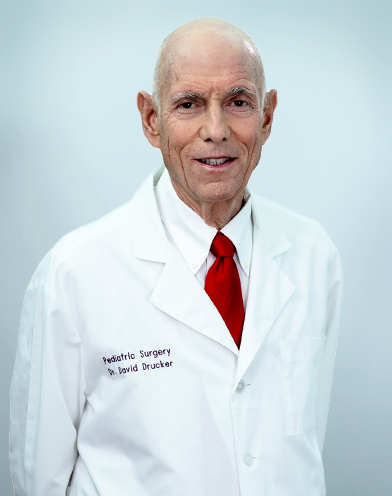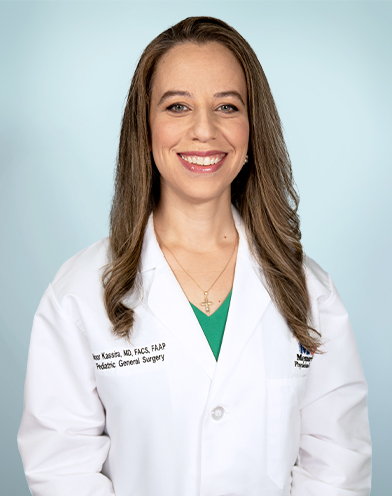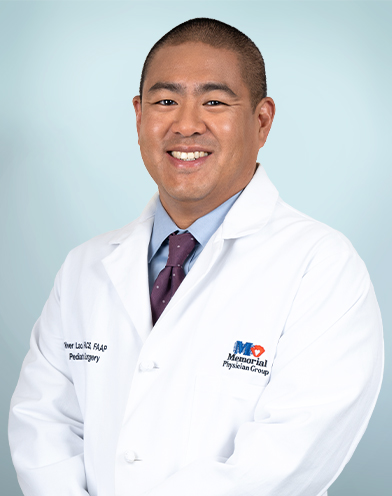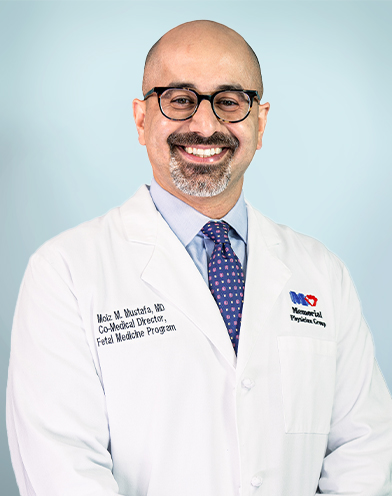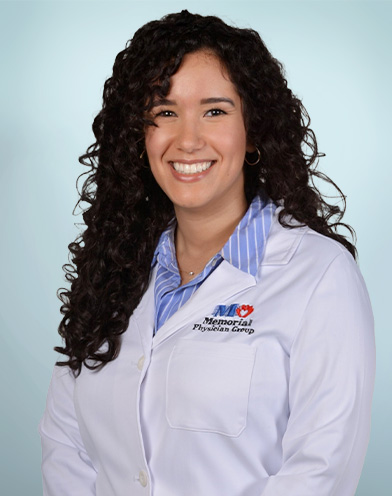Pediatric Chest Wall Deformities
We offer comprehensive care for children with chest wall deformities. One of the few South Florida hospitals with a multidisciplinary chest wall clinic.
Explore Our Pediatric Chest Wall Deformity Services
To schedule an appointment with one of our pediatric general surgeons, call:
954-265-0072Joe DiMaggio Children’s Hospital offers comprehensive patient- and family-centered care for children with chest wall deformities. We’re one of the few South Florida hospitals with a multidisciplinary chest wall clinic, where you and your child can see a physical therapist and a surgeon in one place.
Our pediatric surgical team has extensive experience treating both common and rare conditions, such as:
- Pectus excavatum (sunken chest)
- Pectus carinatum (pigeon chest)
- Mixed chest wall deformities
- Congenital and acquired thoracic dystrophy, such as Jeune syndrome
Pectus Excavatum
What is pectus excavatum?
Pectus excavatum is the most common form of congenital chest wall deformity. It happens when the rib cage and sternum don’t grow properly, causing a concaved or “sunken” chest.
Some babies are born with pectus excavatum, but it typically worsens during puberty, when their bones grow more rapidly. Pectus excavatum is more common in boys, but girls with symptoms also should be checked.
Studies have shown that pectus excavatum may be linked to disorders such as Marfan syndrome, a genetic disorder of the connective tissue.
What are the symptoms of pectus excavatum?
Depending on the severity of the condition, your child may feel chest pain or shortness of breath. They also may feel tired after vigorous activity. Some children feel distressed about the shape of their chest, especially if the condition worsens over time.
How we treat pectus excavatum
Pectus excavatum can compress the heart and lungs, making it harder for kids to enjoy sports or exercise. Children with pectus excavatum also might experience problems like depression, low self-esteem and poor body image. For these reasons, doctors may recommend non-surgical and surgical treatment options, including:
A doctor places a curved metal bar under the sternum, where it stays for up to four years. This is a minimally invasive, elective procedure, but recovery generally takes one month, so many parents schedule surgery for the summer.
This surgery is usually reserved for adolescents with more serious conditions. The surgeon creates an incision along the chest to remove cartilage and reposition the sternum. In some cases, the surgeon places small metal braces to further support the sternum and removes them about six months later.
Your family uses this non-surgical treatment at home, using a suction cup to create a vacuum seal on your child’s chest. The cup is attached to a hand pump, and your child squeezes the pump to lift his or her sternum for the period of time your doctor recommends. This treatment doesn’t interfere with school, sports or other activities.
Pectus Carinatum
What is pectus carinatum?
Pectus carinatum is a genetic condition also known as pigeon chest. It happens when too much cartilage grows inside your child’s chest wall, causing the sternum and ribs to protrude.
This condition is less common than pectus excavatum, but it shares at least two things in common: Both conditions appear in newborns but often become more pronounced during puberty, and both conditions are more common in boys.
Research shows pectus carinatum may be linked with other genetic disorders, including Marfan syndrome, Turner syndrome, Noonan syndrome, heart disease and scoliosis.
What are the symptoms of pectus carinatum?
In mild cases of pectus carinatum, a child’s heart and lungs develop normally. But moderate or severe pectus carinatum can cause a deep hollow in the chest that puts pressure on the lungs and heart. Children with this condition may experience low energy and shortness of breath during strenuous physical activity.
How we treat pectus carinatum
In moderate to severe cases, we use a compression brace to correct the deformity by flattening the chest wall. This is a non-surgical procedure that uses precise pressure to reshape the chest without causing the child major discomfort or skin irritation. Depending on the severity of the condition, a child wears the brace up to 24 hours a day for as long as 15 months.
The most advanced care for pectus carinatum
There are several types of braces used for pectus carinatum. Joe DiMaggio Children's Hospital is one of the few (and the first facility in Florida) to use the FMF® Dynamic Compressor System. This custom-fitted, ultra-light aluminum brace delivers the precise pressure needed to gradually reshape the chest wall, without causing major discomfort.
To schedule an appointment with one of our pediatric general surgeons, call:
954-265-0072MyChart
LOGIN TO MYCHART
It matters to you. It matters to us.
Joe DiMaggio Children's Hospital Quality and Safety
See our hospital's patient satisfaction numbers, number of patients and more.
View Quality and SafetyYou have a Right to Know About Prices
We want to give you the information you need to make important healthcare decisions, including the costs of our services.
View PricingMyChart Portal
View test results, schedule follow-up appointments, request prescription refills and more.
Login or Sign-up to MyChart



